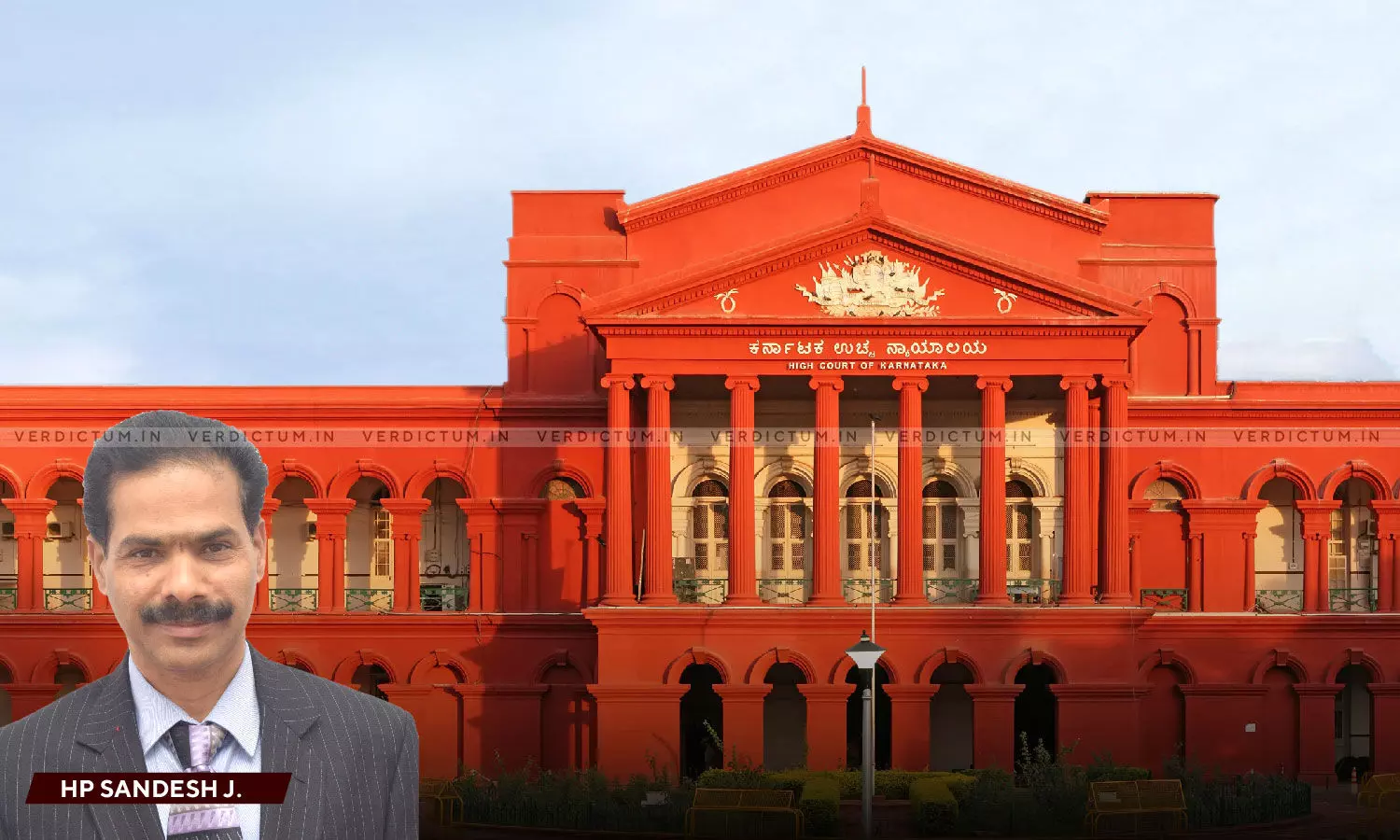
Continuous Readiness & Willingness By Plaintiff Is A Condition Precedent To Grant Relief Of Specific Performance: Karnataka HC
 |
|The Karnataka High Court reiterated that the continuous readiness and willingness on the part of plaintiff is a condition precedent to grant relief of specific performance.
The Court was deciding a regular second appeal filed against the concurrent finding in rejecting prayer of specific performance.
A Single Bench of Justice H.P. Sandesh said, “The First Appellate Court having taken note of material on record, made an observation in paragraph No.32 that the appellant has not produced any document to show that remaining consideration amount is already arranged by him for performing his part of contract, nothing is placed on record. No dispute with regard to the principles laid down in the judgment referred supra and also Court has to take note of facts of each case while applying the ratio and those circumstances not warranted to admit and frame substantial question of law. Even in the judgment of the Apex Court in paragraph No.17 relied upon by the appellate Court also very clearly says that the continuous readiness and willingness on the part of plaintiff is a condition precedent to grant the relief of specific performance.”
Senior Advocate D.L. Jagadeesh and Advocate G. Chandrashekharaiah appeared on behalf of the appellant.
Brief Facts -
There was an agreement of sale and the same was executed by father of defendant in 2003 with sale consideration of Rs. 8,65,000/- out of which Rs. 4,00,000/- was paid. Subsequently, an amount of Rs. 1,00,000/- was also paid in the next year. The defendant’s father died leaving behind him to succeed estate including the suit property. Despite that, the defendants did not come forward to execute the sale deed and hence, the plaintiff filed a suit for relief of specific performance. The Trial Court observed that there was a sale agreement between the plaintiff and intersay father of defendant. The Court concluded that Section 16(c) of the Specific Relief Act was not complied by the plaintiff and hence it declined to grant the relief of specific performance and ordered to refund the amount of Rs. 5,00,000/- with 6% interest.
Being aggrieved by the judgment and decree of the Trial Court, an appeal was filed by the plaintiff before the First Appellate Court. The Court affirmed the judgment and concluded that the plaintiff has not produced any document to show that remaining consideration is already arranged by him for performance of contract and nothing is placed before the Trial Court to pay the balance amount of Rs. 3,65,000/-. Being aggrieved by the said concurrent findings, the second appeal was preferred by him before the High Court.
The High Court in view of the facts and circumstances of the case observed, “… mere execution of sale agreement itself is not a ground for granting the relief of specific performance and even the Court comes to the conclusion that there is an agreement and Court has to see the conduct of the parties while granting the relief of specific performance. It is also important to note that when the relief is sought for the relief of specific performance, readiness and willingness also play a vital role, whether the plaintiff is entitled for the relief of specific performance or not.”
The Court further noted that the continuous willingness on the part of the plaintiff is condition precedent to grant the relief of specific performance and this circumstance is material and relevant and is required to be considered by the Court by granting or refusing to grant the relief.
“If the plaintiff fails to either aver or prove the same, he must be to adjudge whether the plaintiff is ready and willing to perform his part of contract. The Court must take into consideration the conduct of the plaintiff prior and subsequent to the filing of the suit along with other attending circumstances”, it added.
The Court concluded that no ground is made out to admit and frame substantial question of law to invoke Section 100 of the Civil Procedure Code (CPC).
Accordingly, the High Court dismissed the second appeal.
Cause Title- Bylamurthy v. M.G. Gangalakshmamma & Ors. (Neutral Citation: 2024:KHC:26796)